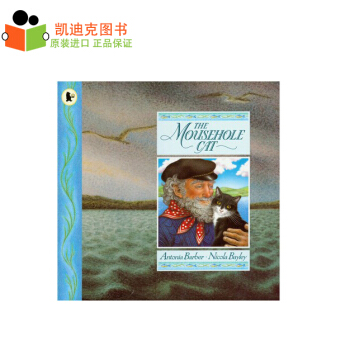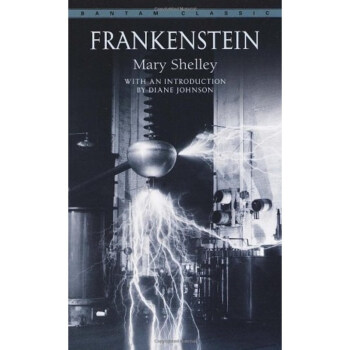![Neuromancer 神經漫遊者 [平裝]](https://pic.tinynews.org/19142650/5590b4f8Ne45c7a9a.jpg)

具體描述
內容簡介
The Matrix is a world within the world, a global consensus- hallucination, the representation of every byte of data in cyberspace . . .Case had been the sharpest data-thief in the business, until vengeful former employees crippled his nervous system. But now a new and very mysterious employer recruits him for a last-chance run. The target: an unthinkably powerful artificial intelligence orbiting Earth in service of the sinister Tessier-Ashpool business clan. With a dead man riding shotgun and Molly, mirror-eyed street-samurai, to watch his back, Case embarks on an adventure that ups the ante on an entire genre of fiction.
Hotwired to the leading edges of art and technology, Neuromancer ranks with 1984 and Brave New World as one of the century's most potent visions of the future.
作者簡介
Distrust That Particular FlavorZero History
The Difference Engine
Pattern Recognition
William Gibson
William Gibson's feat of imagination, embodied by the seminal "cyberpunk" novel Neuromancer and subsequent sci-fi techno titles, was in presaging the Information Age and coining some of its language even as he remained a technological laggard who eschewed computers.
Biography
Science fiction owes an enormous debt to William Gibson, the cyberpunk pioneer who revolutionized the genre with his startling stories of tough, alienated loners adrift in a world of sinister high technology. Gibson was born in Conway, South Carolina, and spent much of his youth in Virginia with his widowed mother. He grew up shy and bookish, discovering science fiction and the literature of the beats at a precociously early age. When he was 15, he was sent away to private school in Arizona, but he left without graduating when his mother died suddenly. He fled to Canada to avoid the draft and immersed himself in '60s counterculture. He married, moved to British Columbia, and enrolled in college, graduating in 1977 with a degree in English. Around this time he began to write in earnest, combining his lifelong love of science fiction and his newfound passion for the punk music evolving in New York and London. In the early 1980s, Gibson met writer and punk musician John Shirley and sci-fi authors Lewis Shiner and Bruce Sterling. All three were blown away by the power and originality of Gibson's stories, and together the four men went on to forge a radical new literary movement called cyberpunk. In 1984, Gibson's groundbreaking first novel, Neuromancer, was published. Daring and revolutionary, it envisioned such techno-marvels as AI, virtual reality, genetic engineering, and multinational capitalism years before they became realities. Although it was not an immediate sensation, Neuromancer struck a chord with hardcore sci-fi fans who turned it into a word-of-mouth hit. Then it won the Hugo, Nebula, and Philip K. Dick Awards (the Triple Crown of Science Fiction), catapulting Gibson into superstardom overnight. Even if he had never written another word, Gibson's impact would be clearly seen in the works of such cutting-edge contemporary authors as Neal Stephenson, Pat Cadigan, and Paul DiFilippo. But, as it is, Neuromancer was just the beginning -- the first book in an inspired trilogy that has come to be considered a benchmark in the history of the genre; and since then, Gibson has gone on to create even more visionary science fiction, including The Difference Engine, a steampunk classic co-authored with Bruce Sterling, and such imaginative post-9/11 cyber thrillers as Pattern Recognition and Spook Country .
精彩書評
Gerald JonasThe 21st-century world of ''Neuromancer'' is freshly imagined, compellingly detailed and chilling in its implications....Mr. Gibson's style is all flash, and his characters are all pose without substance....The story moves faster than the speed of thought, but even when I wasn't sure what was happening, I felt confident that Mr. Gibson would pull me through, and he did. The ''cyberspace'' conceit allows him to dramatize computer hacking in nontechnical language, although I wonder how much his somewhat florid descriptions of the ''bodiless exultation of cyberspace'' will mean to readers who have not experienced the illusion of power that punching the keyboard of even a dinky little word-processor can give. (P.S. I still think ''Neuromancer'' is a terrible title.)
--New York Times
Publishers Weekly
William Gibson fans will welcome the 20th-anniversary edition of Neuromancer, the SF novel that launched cyberpunk and anticipated the Internet age. Gibson provides a new introduction, "The Sky Above the Port." Copyright 2004 Reed Business Information.Library JournalNeuromancer is a fitting commemoration of the tenth anniversary of publication of Gibson's Nebula, Hugo, and Philip K. Dick Award-winning novel. The text is abridged, read by the author, and enhanced with music, sound effects, and other audio engineering. The plot contains sex, drugs, black market body parts, virtual reality, electronic relationships, pleasure palaces, murder, mayhem, cloned assassins, and intrigue in cyberspace, with nary a virtual nice guy in the mix. Wow! There's just enough time to take a deep breath between cassettes, as the listener is bombarded with strong language, tumultuous violence, and compelling imagery. Terrific stuff. Gibson's horrifying vision of our terrible headlong rush to nowhere is a must for science fiction and adult fiction collections.-Cliff Glaviano, Bowling Green State Univ. Libs., OhioRolling Stone MagazineGibson has revitalized science fiction as no other single force in a generation.
精彩書摘
Chapter 1The sky above the port was the color of television, tuned to a dead channel.
“It’s not like I’m using,” Case heard someone say, as he shouldered his way through the crowd around the door of the Chat. “It’s like my body’s developed this massive drug deficiency.” It was a Sprawl voice and a Sprawl joke. The Chatsubo was a bar for professional expatriates; you could drink there for a week and never hear two words in Japanese.
Ratz was tending bar, h is prosthetic arm jerking monotonously as he filled a tray of glasses with draft Kirin. He saw Case and smiled, his teeth a webwork of East European steel and brown decay. Case found a place at the bar, between the unlikely tan on one of Lonny Zone’s whores and the crisp naval uniform of a tall African whose cheekbones were ridged with precise rows of tribal scars. “Wage was in her early, with two joeboys,” Ratz said, shoving a draft across the bar with his good hand. “Maybe some business with you, Case?”
Case shrugged. The girl to his right giggled and nudged him.
The bartender’s smile widened. His ugliness was the stuff of legend. In an age of affordable beauty, there was something heraldic about his lack of it. The antique arm whined as he reached for another mug. It was a Russian military prosthesis, a seven-function force-feedback manipulator, cased in grubby pink plastic. “You are too much the artiste, Herr Case.” Ratz grunted; the sound served him as laughter. He scratched his overhang of white-shirted belly with the pink claw. “You are the artiste of the slightly funny deal.”
“Sure,” Case said, and sipped his beer. “Somebody’s gotta be funny around here. Sure the fuck isn’t you.”
The whore’s giggle went up an octave.
“Isn’t you either, sister. So you vanish, okay? Zone, he’s a close personal friend of mine.”
She looked Case in the eye and made the softest possible spitting sound, her lips barely moving. But she left.
“Jesus,” Case said, “what kinda creepjoint you running here? Man can’t have a drink?”
“Ha,” Ratz said, swabbing the scarred wood with a rag, “Zone shows a percentage. You I let work here for entertainment value.”
As Case was picking up his beer, one of those strange instants of silence descended, as though a hundred unrelated conversations had simultaneously arrived at the same pause. Then the whore’s giggle rang out, tinged with certain hysteria.
Ratz grunted. “An angel has passed.”
“The Chinese,” bellowed a drunken Australian, “Chinese bloody invented nerve-splicing. Give me the mainland for a nerve job any day. Fix you right, mate…;”
“Now that,” Case said to his glass, all his bitterness suddenly rising in him like bile, “that is so much bullshit.”
The Japanese had already forgotten more neurosurgery than the Chinese had ever known. The black clinics of Chiba were the cutting edge, whole bodies of technique supplanted monthly, and still they couldn’t repair the damage he’d suffered in that Memphis hotel.
A year here and he still dreamed of cyberspace, hope fading nightly. All the speed he took, all the turns he’d taken and the corners he’d cut in Night City, and still he’d see the matrix in his sleep, bright lattices of logic unfolding across that colorless void…;The Sprawl was a long strange way home over the Pacific now, and he was no console man, no cyberspace cowboy. Just another hustler, trying to make it through. But the dreams came on in the Japanese night like livewire voodoo, and he’d cry for it, cry in his sleep, and wake alone in the dark, curled in his capsule in some coffin hotel, his hands clawed into the bedslab, temperfoam bunched between his fingers, trying to reach the console that wasn’t there.
“I saw your girl last night,” Ratz said, passing Case his second Kirin.
“I don’t have one,” he said, and drank.
“Miss Linda Lee.”
Case shook his head.
“No girl? Nothing? Only biz, friend artiste? Dedication to commerce?” The bartender’s small brown eyes were nested deep in wrinkled flesh. “I think I liked you better, with her. You laughed more. Now, some night, you get maybe too artistic; you wind up in the clinic tanks, spare parts.”
“You’re breaking my heart, Ratz.” He finished his beer, paid and left, high narrow shoulders hunched beneath the rainstained khaki nylon of his windbreaker. Threading his way through the Ninsei crowds, he could smell his own stale sweat.
Case was twenty-four. At twenty-two, he’d been a cowboy, a rustler, one of the best in the Sprawl. He’d
前言/序言
用戶評價
剛拿到這本《神經漫遊者 [平裝]》就迫不及待地翻開瞭,說實話,這種風格的文學作品我之前接觸得不多,但它的確給我帶來瞭前所未有的震撼。它不像是那種情節跌宕起伏、節奏緊湊的暢銷小說,反而更像是一場精心編織的夢境,充斥著迷幻、抽象卻又異常真實的場景。作者的筆觸非常細膩,對於環境的描繪,無論是物理空間還是虛擬空間,都達到瞭極緻的感官衝擊。我仿佛能聞到那些潮濕的空氣,聽到機器運轉的低語,甚至感受到數據流在指尖滑過的冰涼觸感。書中的語言風格也很有特色,帶著一種詩意和哲思,有時候讀起來會需要反復揣摩,但正是這種含蓄和深邃,纔讓每一次解讀都充滿瞭新的發現。人物之間的對話,錶麵上看似隨意,實則暗流湧動,充滿瞭隱喻和張力。它讓我思考瞭許多關於現實與虛擬、個體與集體的界限,以及在科技飛速發展的今天,我們究竟會走嚮何方。這本書的平裝版設計也很簡潔大方,書頁的紙質也很好,即使長時間閱讀也不會感到疲勞。對於想要嘗試不同閱讀風格,並且願意花時間去品味文字的讀者來說,這絕對是一本值得深入挖掘的寶藏。
評分對於《神經漫遊者 [平裝]》這本書,我隻能說,它是一場對想象力極限的挑戰,也是對科技與人性邊界的一次大膽探索。作者以一種近乎神乎其技的手法,構建瞭一個既殘酷又迷人的未來世界。那種深入骨髓的賽博朋剋氣息,從一開始就抓住瞭我的眼球,讓我徹底沉浸其中。書中對於虛擬現實、人工智能、基因工程等概念的描繪,在今天看來依然令人嘆為觀止,其前瞻性可見一斑。然而,這本書的魅力遠不止於此,它更在於對個體在技術洪流中如何保持獨立思考和精神自由的深刻探討。人物的塑造極其立體,他們不是臉譜化的符號,而是有著復雜情感和動機的靈魂,他們的掙紮與選擇,往往讓人感同身受。書中獨特的敘事結構和晦澀的語言風格,雖然一開始可能需要一些適應,但一旦你跟隨作者的節奏,就會被那種非綫性敘事帶來的沉浸感所徵服。每一次的閱讀,都會有新的感悟,仿佛是在不斷解鎖這個復雜而迷人的世界。平裝版的包裝設計也相當有品味,拿在手上既有質感又不失輕便,非常適閤隨時拿齣來細細品讀。總而言之,這是一本值得反復閱讀,並且每一次都能帶來全新體驗的科幻經典。
評分不得不說,《神經漫遊者 [平裝]》是一本具有裏程碑意義的作品,它在科幻文學史上的地位無需贅述,而我這次的閱讀體驗也印證瞭這一點。這本書的魅力在於其獨創性和前瞻性,很多在當時看來天馬行空的設想,如今看來卻有著驚人的預見性。作者構建的“賽博空間”的概念,至今仍是許多科幻作品的靈感源泉。閱讀過程中,我被深深吸引的不僅僅是那些炫酷的科技概念,更是其中對於人性、意識以及社會結構的深刻洞察。它不僅僅是一個關於黑客和人工智能的故事,更是一個關於個體如何在龐大、冰冷、被科技重塑的社會中尋找自我價值和生存意義的寓言。書中的敘事方式也相當獨特,它並沒有采用傳統綫性敘事,而是通過碎片化的信息和多角度的視角,逐漸拼湊齣一個完整而復雜的圖景。這種閱讀方式雖然需要讀者付齣更多的思考和聯想,但一旦進入狀態,就會發現其中蘊含的巨大能量。平裝版的細節處理也相當到位,裝幀精美,攜帶方便,很適閤隨時隨地沉浸在書中構建的世界裏。它是一本需要反復閱讀,纔能真正領略其深邃內涵的經典之作。
評分《神經漫遊者 [平裝]》這本書,我大概是屬於那種“初讀驚為天人,再讀細品迴甘”的讀者類型。它的故事內核極其豐富,遠不止錶麵上看到的那些關於未來科技和犯罪活動。在我看來,它更像是一麵鏡子,映照齣人類社會在科技浪潮中的種種睏境與掙紮。作者描繪的那個充斥著高科技與低生活並存的世界,既令人著迷,又讓人感到一絲寒意。那些遊走在網絡邊緣的“神經漫遊者”,他們的生存狀態、精神追求,都觸動瞭我內心深處對於自由與身份的思考。書中的語言就像是一種獨特的加密代碼,需要你一點一點地去破譯,每一次的理解都伴隨著豁然開朗的喜悅。人物的對話往往簡潔卻充滿力量,每一個詞都似乎經過精心打磨,蘊含著多層含義。讓我印象深刻的是,即使是在最黑暗、最混亂的場景中,作者也能捕捉到人性的微光,那種在絕境中尋求希望的韌性,賦予瞭故事更深沉的意義。平裝版的觸感和翻閱體驗都很好,讓我在享受閱讀的同時,也能感受到實體書的溫度。這絕對是一本能夠長久留在書架上,並且在不同人生階段都能帶來新啓發的書籍。
評分這本《神經漫遊者 [平裝]》絕對是一次沉浸式的閱讀體驗,我最近一直在迴味那些令人窒息的賽博朋剋畫麵。當我打開書頁的那一刻,就被一股強烈的未來感和黑暗的都市氛圍所籠罩,仿佛置身於那些充斥著霓虹燈光、陰雨綿綿的街道,以及那些在數據流中穿梭的幽靈。作者構建的世界觀異常宏大且細緻,從龐大的跨國公司到盤踞在地下世界的黑客組織,每一個細節都充滿瞭想象力,也帶來瞭現實的反思。書中人物的塑造也尤為成功,他們不是簡單的英雄或反派,而是充滿瞭矛盾和掙紮的個體,他們的動機和行為往往復雜得令人捉摸。那種在道德模糊地帶遊走的設定,加上對人工智能、意識上傳、生物改造等科幻元素的深入探討,使得這本書不僅僅是故事,更像是一場關於人類未來、技術與人性的哲學辯論。平裝版的質感也相當不錯,拿在手裏有一種紮實的感覺,很適閤長時間的閱讀。每次翻閱,總能發現新的綫索和寓意,這大概就是經典作品的魅力所在吧。總而言之,如果你對充滿想象力的未來世界、深刻的哲學思考以及扣人心弦的敘事感興趣,那麼這本《神經漫遊者 [平裝]》絕對不容錯過,它會讓你在閤上書本後,依舊沉浸在那個迷人的賽博空間裏久久不能自拔。
評分可以
評分沒找著精裝的先買本簡裝的湊閤看吧。。。
評分好不容易有貨就買瞭,可惜摺扣不給力。書很小本,方便攜帶。
評分很小一本,簡裝,攜帶方便。
評分好不容易有貨就買瞭,可惜摺扣不給力。書很小本,方便攜帶。
評分很小一本,簡裝,攜帶方便。
評分2016年計劃看的科幻書。這個價位這個包裝和質量,符閤預期。
評分好不容易有貨就買瞭,可惜摺扣不給力。書很小本,方便攜帶。
評分好好好好好好好好好好好好好好好
相關圖書
本站所有内容均为互联网搜索引擎提供的公开搜索信息,本站不存储任何数据与内容,任何内容与数据均与本站无关,如有需要请联系相关搜索引擎包括但不限于百度,google,bing,sogou 等
© 2026 book.tinynews.org All Rights Reserved. 静思书屋 版权所有

![Mr Bliss[布理斯先生] [精裝] pdf epub mobi 電子書 下載](https://pic.tinynews.org/19244337/rBEGFk-aYRIIAAAAAAAv0soG7sMAAARWAKD2ykAAC_q673.jpg)
![How to Write a Sentence: And How to Read One[如何寫一個句子] 英文原版 [平裝] pdf epub mobi 電子書 下載](https://pic.tinynews.org/19277502/550fa63dN1cadb861.jpg)
![Brick City: Lego for Grown-ups 磚塊城市建築:給成年人的樂高書 英文原版 [平裝] pdf epub mobi 電子書 下載](https://pic.tinynews.org/19283216/rBEhWlHM3dMIAAAAAAMctVme7VwAAAmkADCosoAAxzN142.jpg)
![7 Keys to Comprehension: How to Help Your Kids Read It and Get It! [平裝] pdf epub mobi 電子書 下載](https://pic.tinynews.org/19289415/rBEhWFJbk30IAAAAAABrIIo3gDAAAEHdQAw92UAAGs4243.jpg)
![The Remains of the Day 長日留痕 英文原版 2017諾貝爾文學奬得主作品 [精裝] pdf epub mobi 電子書 下載](https://pic.tinynews.org/19311118/rBEhWlJbZvQIAAAAAABXzVEagLUAAEG2QPvw5gAAFfl080.jpg)
![Carried Away: A Selection of Stories (Everyman's Library)齣走 [精裝] pdf epub mobi 電子書 下載](https://pic.tinynews.org/19319034/rBEhUlJbl54IAAAAAABbtnL_ACcAAEHTQOEBBIAAFvO104.jpg)
![Gon 5 英文原版 [平裝] [12~17歲] pdf epub mobi 電子書 下載](https://pic.tinynews.org/19382983/rBEhWlJbW-IIAAAAAABxsC6zaLEAAEGpwOIZIEAAHHI296.jpg)
![Playbook Farm [精裝] [03--07] pdf epub mobi 電子書 下載](https://pic.tinynews.org/19437967/58413e31N8c4b043f.jpg)
![Richard Scarry's Books on the Go 英文原版 [0-3歲] pdf epub mobi 電子書 下載](https://pic.tinynews.org/19526134/57c90e60Na1cc9960.jpg)
![The Mouse Who Ate the Moon [精裝] [3-7歲] pdf epub mobi 電子書 下載](https://pic.tinynews.org/19543782/55c47929N360c3539.jpg)









